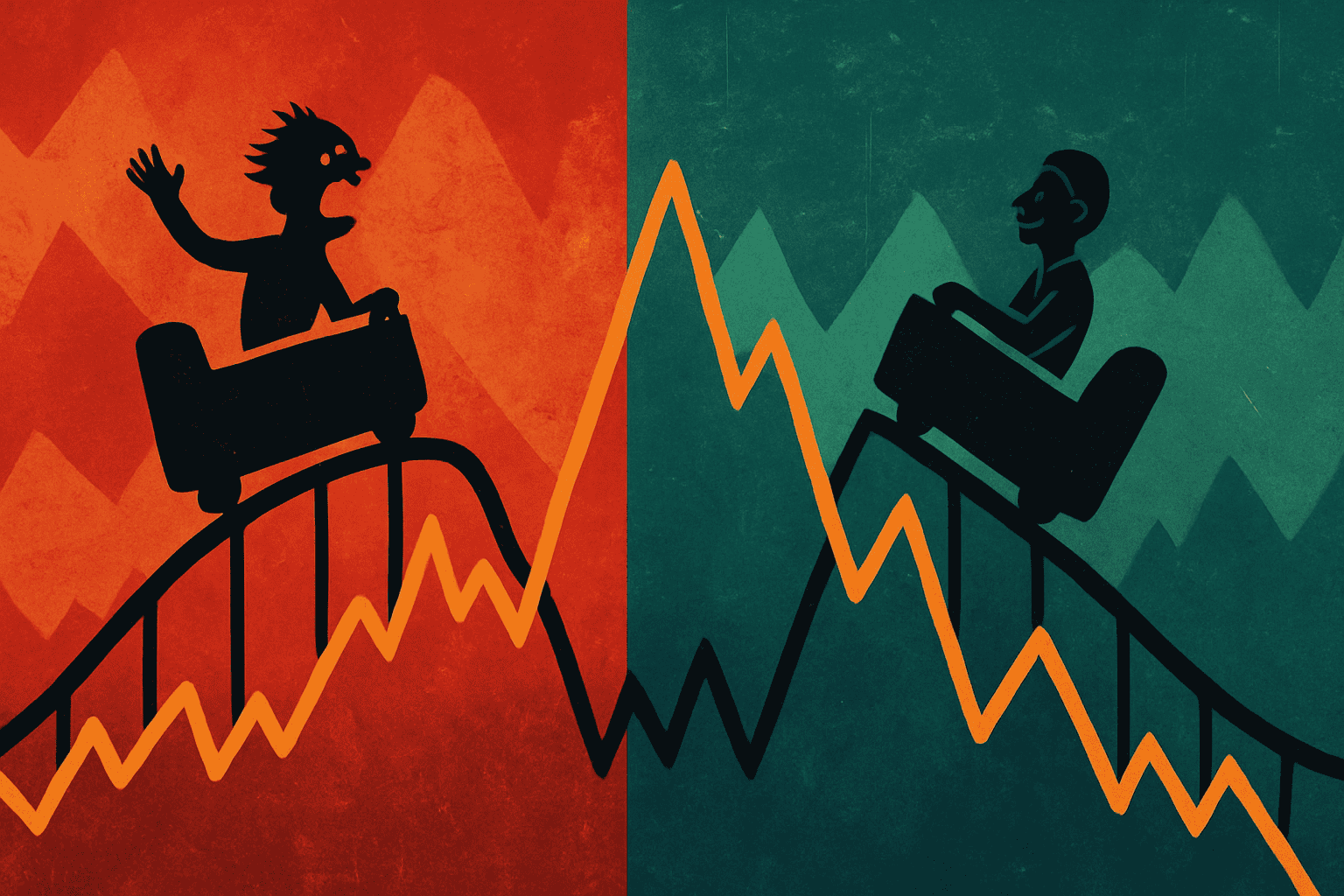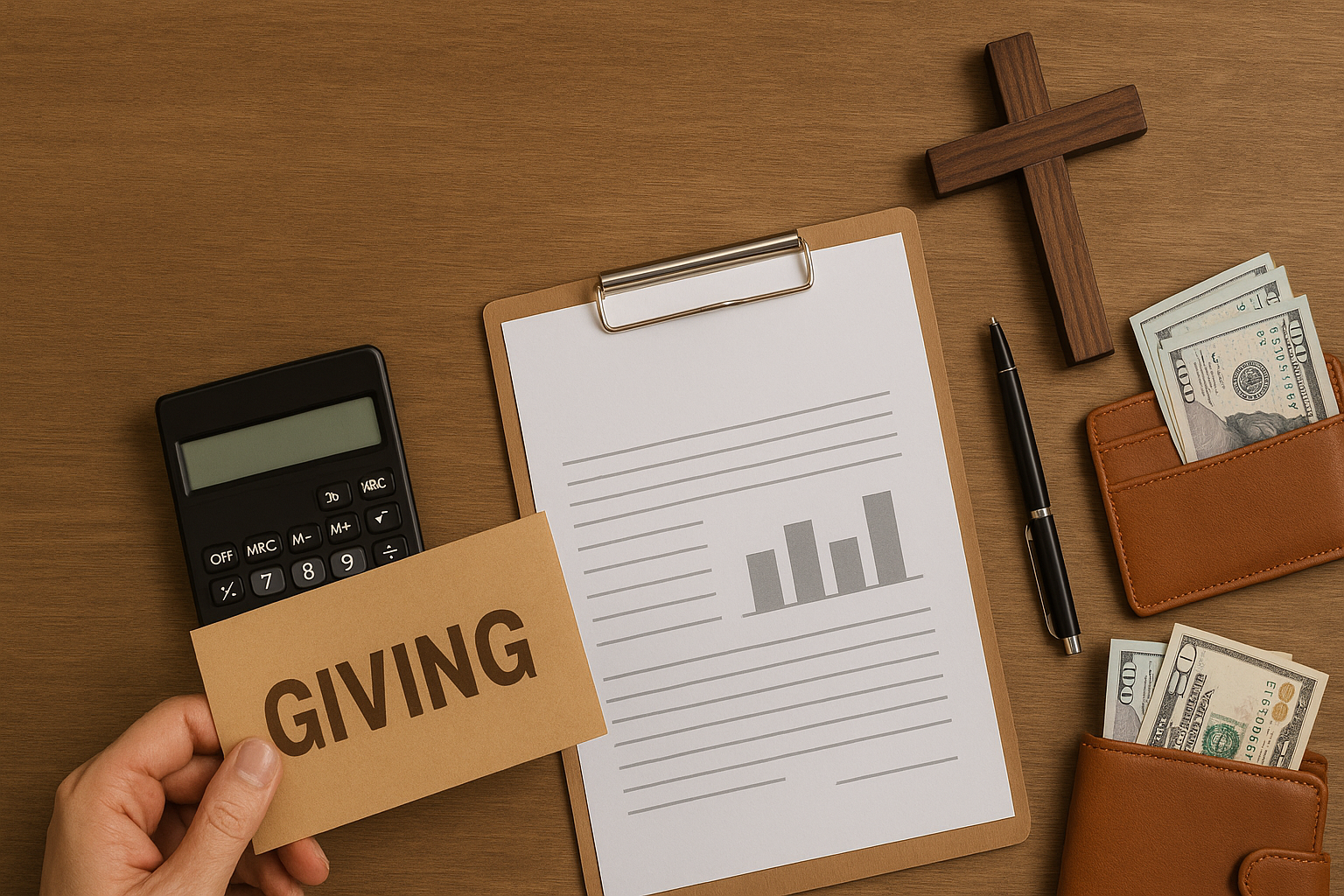Imagine standing at the edge of a roller coaster, heart pounding, palms sweaty. The ride ahead is full of twists, turns, and sudden drops. This is what the world of markets and economies often feels like—a wild adventure powered by two mighty engines: fear and greed. But what if you could ride this roller coaster with a sense of peace and purpose, rather than being tossed about by every jolt and dip? Let’s explore how fear and greed shape our financial world, and how, as Christians, we can choose a different way.
The Twin Titans: Fear and Greed in the Marketplace
Close your eyes and picture a bustling stock exchange. People shout, screens flash, and numbers dance up and down. Beneath all this noise, two invisible forces are at work: fear and greed. These emotions are not just feelings—they are the fuel that drives markets up to dizzying heights and down to frightening lows.
- Greed is the thrill of chasing after more—more money, more success, more stuff. It’s what makes people rush to buy stocks when prices are soaring, hoping to get rich quick. When greed takes over, prices can shoot far above what things are really worth, creating bubbles that eventually burst.
- Fear is the icy grip that makes people panic when things go wrong. It’s what causes investors to sell everything in a hurry when bad news hits, driving prices down, sometimes much lower than they should go.
Markets are like a giant see-saw, with fear on one side and greed on the other. When everyone is greedy, the see-saw tips up—prices rise, sometimes too high. When fear takes over, it crashes down—prices fall, sometimes too low.
The Fear and Greed Index: Measuring the Mood
Did you know there’s actually a tool called the Fear and Greed Index? It’s like a mood ring for the market, showing whether people are feeling scared or greedy. The index swings from 0 (extreme fear) to 100 (extreme greed), with 50 being neutral. When the needle points to fear, people are selling; when it points to greed, they’re buying like there’s no tomorrow.
For example, during the COVID-19 pandemic in March 2020, the index plunged to extreme fear. Stocks dropped more than 30% in just a few weeks as people panicked. But those who stayed calm and bought during the fear saw huge gains when the market bounced back.
Real-Life Roller Coasters: Stories of Fear and Greed
Let’s look at some real-life examples:
- Dot-Com Bubble (Late 1990s): Greed took over as people rushed to buy internet company stocks, even if the companies weren’t making money. Prices soared, then crashed, wiping out billions of dollars.
- 2008 Financial Crisis: Fear exploded when the housing market collapsed. Investors panicked, selling stocks and causing markets to tumble. But those who didn’t give in to fear and bought during the lows eventually saw their investments recover.
- Cryptocurrency Boom (2017): Greed ruled as people scrambled to buy Bitcoin and other digital coins, hoping for quick riches. Prices skyrocketed, then crashed just as quickly when reality set in.
The Good, the Bad, and the Opportunity
It’s easy to see fear and greed as villains, but they also create opportunities. When everyone is greedy and prices are too high, it’s a warning to be careful. When everyone is scared and prices are low, it can be a chance to buy good things at a bargain. Legendary investor Warren Buffett put it this way: “Be fearful when others are greedy, and greedy when others are fearful.”
But here’s the catch: most people do the opposite! They buy high when they’re excited and sell low when they’re scared, which is backwards from what works best.
The Christian Perspective: A Different Way to Ride
As Christians, we are called to live differently. The Bible is full of wisdom about money, fear, and greed. Let’s break it down:
- Don’t Be Governed by Fear
The Bible says over and over: “Fear not.” God knows that fear can paralyze us, make us act rashly, or cause us to miss out on blessings. Jesus told His followers not to worry about tomorrow, but to trust in God’s care.
“Therefore I say unto you, Take no thought for your life, what ye shall eat, or what ye shall drink; nor yet for your body, what ye shall put on. Is not the life more than meat, and the body than raiment?… But seek ye first the kingdom of God, and his righteousness; and all these things shall be added unto you. Take therefore no thought for the morrow: for the morrow shall take thought for the things of itself. Sufficient unto the day is the evil thereof.” — Matthew 6:25, 33-34 (KJV)
And Paul reminds us:
“For God hath not given us the spirit of fear; but of power, and of love, and of a sound mind.” — 2 Timothy 1:7 (KJV) - Don’t Be Ruled by Greed
Greed is sneaky. It whispers, “Just a little more and you’ll be happy.” But the Bible warns that the love of money is a root of all kinds of evil.
“For the love of money is the root of all evil: which while some coveted after, they have erred from the faith, and pierced themselves through with many sorrows.” — 1 Timothy 6:10 (KJV)
Greed can make us selfish, blind to others’ needs, and willing to take foolish risks. Instead, Christians are called to be content, generous, and wise.
“Let your conversation be without covetousness; and be content with such things as ye have: for he hath said, I will never leave thee, nor forsake thee.” — Hebrews 13:5 (KJV) - Use Fear and Greed Wisely
Here’s the twist: fear and greed aren’t always bad. They can be signals—like warning lights on a dashboard. If you feel fear when everyone else is greedy, it might be time to be cautious. If you see everyone panicking, it could be a chance to act boldly and help others, or to invest wisely.
But don’t let these emotions drive the car. Instead, let faith, wisdom, and love take the wheel. Use fear to keep you humble and careful. Use ambition (not greed) to motivate you to work hard and provide for your family—but always with a heart that seeks God’s will first.
A New Kind of Index: Faith, Hope, and Love
Imagine if, instead of a Fear and Greed Index, we had a Faith, Hope, and Love Index! What would our world look like if people made decisions based on trust in God, hope for the future, and love for others?
- Faith helps us stand firm when the world shakes.
- Hope keeps us looking forward, even when times are tough.
- Love reminds us to care for others, not just ourselves.
The poor widow in Mark 12:41-44 gave all she had, not out of fear or greed, but out of trust and love for God. She is a model for us—a reminder that true wealth is not in our wallets, but in our hearts.
Practical Tips: How to Ride the Market Roller Coaster with Faith
Here are some ways to keep your balance when fear and greed are swirling:
- Pray before making big decisions. Ask God for wisdom and peace.
- Don’t follow the crowd blindly. Just because everyone is buying or selling doesn’t mean it’s the right time for you.
- Remember your goals. Why are you investing or saving? Keep your eyes on the bigger picture, not just short-term gains.
- Be generous. Use your resources to bless others, not just yourself.
- Stay informed, but not obsessed. Learn about markets, but don’t let the news control your emotions.
Conclusion: Living Above the Waves
Markets and economies will always rise and fall. Fear and greed will always swirl around us, tempting us to jump on or off the roller coaster at the wrong times. But as Christians, we are called to a higher way—a way marked by faith, wisdom, and love.
Let’s not be governed by fear or greed. Let’s use them as signals, not masters. And let’s remember that our true security is not in the ups and downs of the market, but in the unchanging love of God.
So next time you hear the roar of the market roller coaster, take a deep breath. Trust God. Hold on tight—not to your money, but to your faith. And enjoy the ride, knowing you are never alone.
“But thou shalt remember the Lord thy God: for it is he that giveth thee power to get wealth, that he may establish his covenant which he sware unto thy fathers, as it is this day.” — Deuteronomy 8:18 (KJV)
Please note: All charts and numbers are for illustration purposes only. Accuracy is neither warrantied nor implied. We are not attorneys or tax advisors. This information is educational only. Not to be considered as advice or recommendations. It is imperative that you consult with a tax advisor and/or attorney when considering any of these concepts. In addition, it is critical that the attorney, tax advisor, and financial advisor are knowledgeable and practiced in these areas.
If you would like help finding such an advisor, we will be glad to introduce you to an experienced planner with your best interest in mind. Please give us a call at 1-800-522-4324













